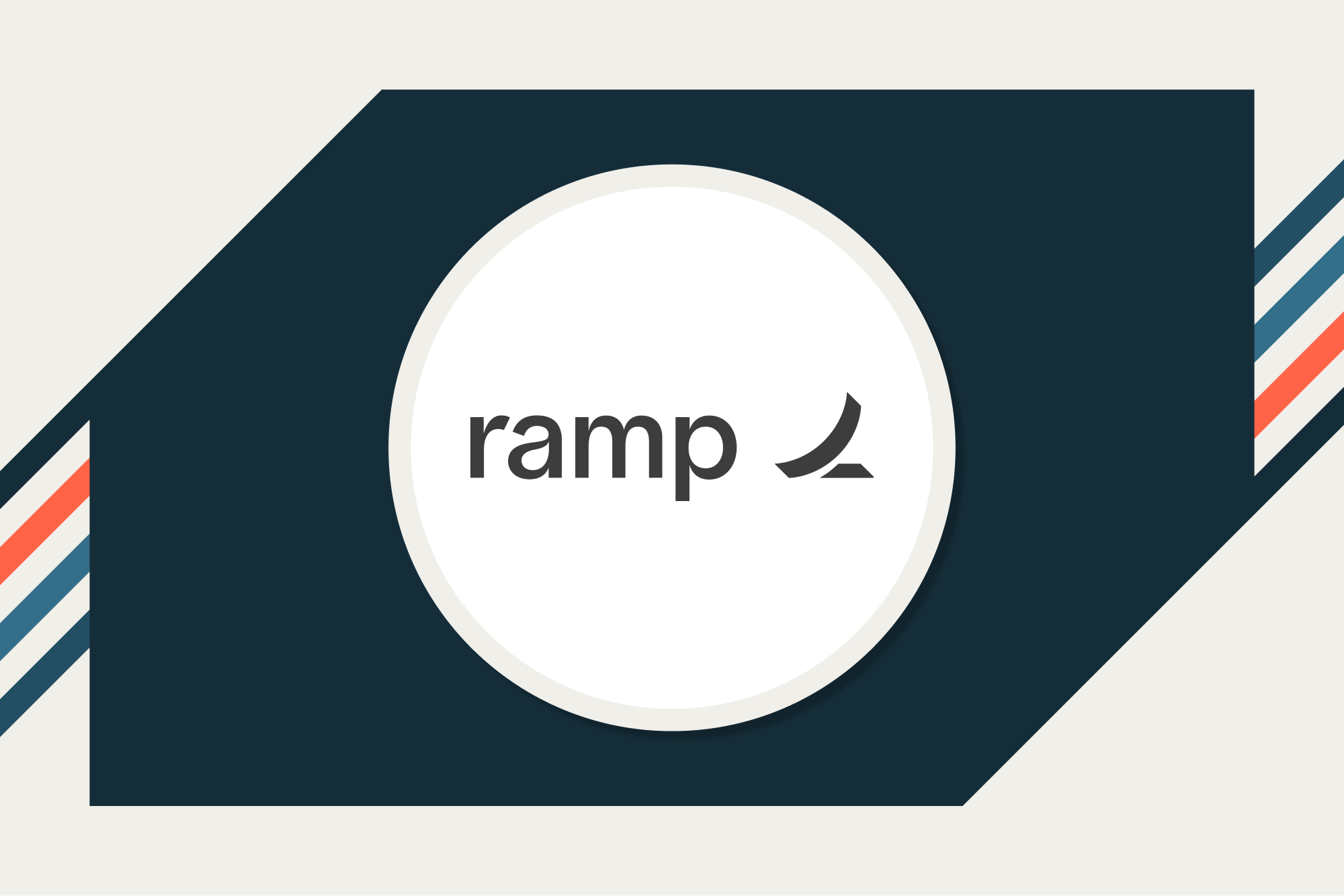Ramp entered the spend management market in 2019, initially focusing on corporate cards and catering to small and medium-sized businesses (SMBs). Over time, it expanded its offerings to AP automation, reimbursements, and bill payments, with procurement being the most recent addition.
However, keeping in mind the evolving needs of mid-market and early enterprise companies, we’ve listed the top 10 Ramp alternatives.
Comparison criteria.
Here’s the criteria we used to evaluate Ramp alternatives:
- Breadth and depth of features
- User-centric design.
- Pricing flexibility.
- Favorable reviews and ratings.
Overview: Ramp alternatives and competitors.
| Competitor | Top Feature | Primary Market | G2 Rating | Pricing |
| Airbase | P2P | Mid-market | 4.8 | $$ |
| Extend | Expenses | Small to large businesses | 4.7 | Free |
| MangoPay | Payments | Small to large businesses | 3.5 | $$ |
| NETELLER | Payments | Small, medium, and large businesses | 3.8 | $$$ |
| Oracle NetSuite | ERP | Mid-market and enterprises | 4.7 | $$$ |
| Pleo | Expenses | Startups, small businesses, and enterprises | 4.7 | $$ |
| Sage Intacct | P2P | Small and medium-sized businesses | 4.3 | $$$ |
| Spendesk | Expenses | Small, medium, and large businesses | 4.7 | $$$ |
| Spendwise | Expenses | Small to medium-sized businesses | 4.8 | $$ |
1. Airbase.
Airbase is an innovative platform that took the lead in expanding spend management to offer a holistic solution for the procure-to-pay-to-close process. Unlike Ramp that caters to SMBs with simplified processes, Airbase is tailored for companies with complex, cross-functional procurement workflows and accounting needs.

Airbase supports advanced approval workflows across subsidiaries
Best features.
- Multi-subsidiary support: Airbase enables the creation of multiple subsidiaries within a single instance, each linked to its corresponding bank account for streamlined financial management.
- Complex approval workflows: Users can design custom, granular workflows tailored to the specific needs of each subsidiary, ensuring compliant processes.
- International payments: With coverage in over 200 countries and 140+ currencies, Airbase facilitates global financial operations.
- Dynamic procurement features: Airbase offers advanced procurement capabilities with dynamic adaptation of flows and steps based on user input, ensuring flexibility and responsiveness to evolving needs.
- Efficient spend management: Leveraging OCR, ML, and AI technology, Airbase streamlines spend management processes, enhancing accuracy and efficiency in expense tracking and reporting.
Airbase G2 rating: 4.8/5
Airbase pricing.
Airbase’s packages are spread across Standard, Premium, and Enterprise categories. Users can add on travel, POs, and approval workflow features.
Customers and best suited for:
- Company size: Mid-market to large enterprises (with 50 to 10,000 employees).
- Solution needs: Businesses looking for a scalable solution with advanced AP automation, intake, and expense management features.
2. Extend.
For startups and small businesses looking for free Ramp alternatives in spend management space, Extend is a great choice. With Extend, you can link your existing credit card from any of the leading banks while creating virtual cards, budgets, and tracking spend on the platform.

Define budget and track transactions and budget balance
Best features.
- Virtual cards with spend limits: Issue virtual cards for single-use, multi-use, and recurring payments, tailored to every employee, project, department, or vendor.
- Simplified card requests: Allow employees to request virtual cards directly within the app, streamlining the approval process.
- Requests and approvals on the go: Employees can request virtual cards within the app and attach notes and documents for approvers.
- Budgets: Set budgets for different expense categories, create cards from pre-approved funds, and track budgets in real time.
- Multiple banking partners: Extend partners with leading banks, including American Express, HSBC, Silicon Valley Bank, and others.
- Card reconciliation: Use custom expense category codes and automate reconciliation by tagging cards and transactions.
- API integrations: Connect Extend with CRM, ERP, and GL via Extend API.
Extend G2 rating: 4.7/5
Extend pricing.
Extend is a free online platform.
Customers and best suited for:
- Company size: Small to large businesses.
- Solution needs: E-commerce companies in need of a free platform to create virtual cards, manage spend, and track budgets.
3. MangoPay.
MangoPay is a payment solutions platform with features tailored to support e-commerce marketplaces and businesses that handle cross-border payments.
While it has robust fraud detection, Software Development Kit (SDK), and multi-currency payment features, MangoPay does not support card payments in USD. However, if your business has a presence in Europe or handles payments in currencies other than USD, MangoPay may be one of the Ramp alternatives to consider.

Real-time insights on payins and payouts
Best features.
- Flexible payment terms: Provide deferred and advance payment options to cater to buyer preferences and enhance conversion rates.
- Real-time user verification: Verify users globally in real time to mitigate fraudulent activities and enhance marketplace credibility.
- Payment insights: Create custom reports, track transactions, and monitor user verification status.
- Multiple payment methods: Allow users to pay with their preferred payment methods to improve local conversion rates.
- Fraud detection: Advanced algorithms to detect various risk signals.
- White-label API: Establish custom transfers using MangoPay’s white-label API.
- SDK and sandbox for testing: Plug-ins, SDKs, and sandbox environment for testing and integration into existing applications.
MangoPay G2 Rating: 3.5/5
MangoPay pricing.
MangoPay’s Standard plan carries a charge of 1.4% of the transaction amount plus €0.25 for pay-ins. The platform fee is volume-dependent while payouts are priced from €0.20. Know Your Customer (KYC) verification checks start at €1, while KYB (Know Your Business) checks are priced at €5. The Custom plan offers tailored pricing for businesses that process over €400,000 per month.
Customers and best suited for:
- Company size: Small to large businesses.
- Solution needs: Multinational entities with a significant presence in Europe on the lookout for payment solutions.
4. NETELLER.
NETELLER is one of the Ramp alternatives to consider if you are in search of an online payment platform that facilitates e-wallet deposits and multi-currency payments.

View transaction history and apply multiple filters
Best features.
- Global payment processing: Payment processing across 200 countries and 22 currencies.
- Flexible payment gateway: Instant one-off and batch payments.
- Transaction security: Multiple payment fraud protection tools and helps eliminate chargebacks.
- NET+ Prepaid Mastercard: Virtual and physical card for in-store and online purchases and for withdrawing cash from ATMs across the world.
- Payments to non-account holders: Recipients who do not have a NETELLER account can accept payments.
- Transaction insights: Multiple filters to segregate transactions based on amount, date range, account, and more.
NETELLER G2 rating: 3.8/5
NETELLER pricing.
Receiving money through NETELLER is free. However, the transaction fee varies for different payment or deposit methods. NETELLER offers two account levels of NETELLER Standard with a 2.99% fee per transaction and NETELLER True with a fee of 1.45%. A per-transaction fee of 2.99% applies for sending money to another NETELLER account holder.
Customers and best suited for:
- Company size: Small, medium, and large businesses.
- Solution needs: Companies and merchants looking for global money transfer and payment solutions.
5. Oracle NetSuite.
Oracle NetSuite is a comprehensive business management suite that combines CRM, ERP, omnichannel commerce, and capital management among others. We have featured it in our list of Ramp alternatives based on NetSuite’s capabilities with respect to procurement, accounting, and payment management.

Configurable dashboard to monitor AP processes
Best features.
- Configurable dashboards: Real-time tracking of purchase orders, invoices awaiting approval, invoice due dates, scheduled payments, and other key information.
- Invoice processing: AI/ML-based object detection and OCR to capture invoices and to convert details into digital text.
- Payment support: Pay bills directly through NetSuite using embedded banking services.
- Close checklist: Standardized close checklist to ensure a smooth financial close process.
- Sourcing and procurement management: Tools to manage RFQ processes, select quality vendors, manage vendor relations centrally, and supplier communication.
- Financial insights: Pre-built and custom financial reports with multi-dimensional analytics.
NetSuite G2 rating: 4.7/5
NetSuite pricing.
In addition to an initial implementation fee, NetSuite charges an annual license fee based on the number of users, optional modules, and the core platform.
Customers and best suited for:
- Company size: Rapidly growing small companies, mid-market, and enterprises.
- Solution needs: Businesses in need of a powerful ERP solution that automates AP and procurement processes but doesn’t need specialist procurement and AP automation tools.
6. Pleo.
Pleo may be the right choice for businesses seeking free Ramp competitors that offer expense management features. In addition to expense management, Pleo offers corporate cards, GL integration, and analytics. However, the software lacks AP automation, procurement, and vendor management tools that are available with Ramp.

Pleo automatically categorizes expenses
Best features.
- Budget management: Centralized view of all budgets and an easy way of creating new budgets.
- Expense management: Mobile app for submitting receipts and automatic categorization of expenses.
- Fetch feature: Automatically matches expenses with online purchase receipts.
- Bookkeeping: Syncs transaction details, including tax code, account, and receipts with 30 accounting software.
- Corporate cards: Set spend limits on corporate cards and manage spend on a centralized platform.
- Spend analytics: Dashboard with detailed spend insights.
Pleo G2 rating: 4.7/5
Pleo pricing.
Pleo offers three pricing plans — Starter, Essential, and Advanced. The Starter plan is free while the Essential plan costs $57 (£45)* per month ($49.3 per month if billed yearly). The Advanced plan is priced at $125 (£99) per month ($112.6 per month if billed yearly).
*Exchange rate: £1= $1.27.
Customers and best suited for:
- Company size: Startups, small businesses, and enterprises.
- Solution needs: Companies seeking simple expense and bookkeeping automation.
7. Sage Intacct.
Sage Intacct offers a wide range of business solutions, including ERP, HRMS, payroll, and inventory management. It is included in our list of alternatives to Ramp due to its robust accounting automation, procurement, and payment solutions, which streamline financial processes.

Dashboard to get revenue insights across multiple entities
Best features.
- Structured procurement workflow: Customizable approval workflows with built-in compliance to cover purchase requests, POs, and invoicing.
- AP automation: AI-based data extraction from uploaded invoices and quick reconciliation with auto-matched transactions.
- Spend control: Set custom validation rules for departments, locations, and types of spend.
- Interactive visual explorer: Advanced visualization tools to view insights on a single entity or to get an overview of all subsidiaries.
- Bill payment: Make supplier payments quickly and securely with just a few clicks.
Intacct G2 rating: 4.3/5
Intacct pricing.
Sage Intacct tailors pricing based on the set of modules businesses opt for. The accounting software for small businesses, Sage 50, has three pricing plans: Pro Accounting, Premium Accounting, and Quantum Accounting. The Pro plan is priced at $595 per year, the Premium plan costs $970, and the Quantum Accounting plan costs $1,610 annually.
Customers and best suited for:
- Company size: Small and medium businesses.
- Solution needs: Businesses looking to invest in a cloud-based ERP and accounting software with add-on modules for payroll, retail operating systems, and inventory management.
8. Spendesk.
Spendesk shares many features with Ramp, including expense management, AP automation, corporate cards, and payment integration, making it one of the suitable Ramp alternatives. However, unlike Ramp, Spendesk does not offer procurement, vendor management, and international bill payments.

Custom receipt rules to collect receipts on time
Best features.
- Corporate cards: Single-use, pre-paid virtual cards with granular control over time slots, days, and types of spend.
- Accounts payable automation: ML-powered auto-filling of VAT rate and expense account fields.
- Budget management: View and track budgets across departments while understanding the impact of spend requests on budgets.
- Centralized dashboard for approvals: Team managers can review and approve invoices, reimbursements, and spend requests within a unified platform.
- Payments and reconciliation: Schedule supplier payments and fast-track reimbursement from within Spendesk wallet while pushing spend data into the accounting software.
Spendesk G2 rating: 4.7/5
Spendesk pricing.
Spendesk has not listed the pricing information on its website.
Customers and best suited for:
- Company size: Small, medium, and large businesses.
- Solution needs: Companies that prioritize spend management, AP automation, and budget planning.
9. Spendwise.
Spendwise is designed to boost the efficiency of financial operations for small and medium businesses. Being one of the Ramp competitors with a no-frills approach, Spendwise offers tools for generating multiple purchase orders, managing budgets, and tracking bills and expenses.

An easy way of creating and submitting purchase orders
Best features.
- Purchase requests: Generate custom purchase requests with pre-populated data on vendors, items, and accounting codes.
- PO routing: Automated PO creation upon approval, PO matching, and routing to relevant stakeholders.
- Document management: Customizable procurement contracts and a repository to store documents, such as catalogs.
- Spend tracking: Monitor expenditures by category, department, or project.
- Budgets: Establish budgets and monitor spending against them.
- Reports: Generate and save 25 reports in PDF or Excel formats.
- Multiple dashboards: Set up dashboards for easy spending activity monitoring.
Spendwise G2 rating: 4.8/5
Spendwise pricing.
Spendwise offers Basic, Pro, and Enterprise plans with the Basic plan, priced at $9 user per month, allowing 5 users and 10 transactions per month. The Pro plan offers unlimited transactions and up to 50 users at a cost of $19 user per month. The Enterprise plan with unlimited users and transactions offers custom pricing.
Customers and best suited for:
- Company size: Small to medium-sized businesses.
- Solution needs: Businesses looking for a user-friendly spend management solution.
Airbase vs Ramp.
In this section, we delve into the features and advantages of each software to conduct a thorough comparison between them.
What does Airbase do?
Airbase provides a comprehensive procure, pay, close platform that streamlines accounts payable, expense management, corporate card, and bill pay processes. With advanced features such as bulk bill payments, payment tracking, and multi-subsidiary support, Airbase enables businesses to scale efficiently while ensuring compliance and control.
Airbase solutions.
Guided Procurement.
Airbase’s intake module automates the entire purchase lifecycle, from intake to pay to close. Admins can define granular approval flows using a no-code, drag-and-drop builder based on types of spend, locations, departments, requesters, and more.
Admins can also route approvals sequentially or in parallel while choosing to automatically reroute if any approver is not available. Based on the defined rules, the platform guides employees in creating a purchase request, dynamically adapting questions and approval flows based on the responses.
Airbase integrates with the software that IT, finance, legal, and procurement teams commonly use, including Slack, Ironclad, Jira, Asana, and DocuSign to facilitate seamless review and approvals via these platforms.
Accounts Payable Automation.
The powerful accounts payable automation software eliminates the hassles, errors, and delays involved in manual processes. With OCR technology, the platform captures invoice details upon upload and generates a bill, which undergoes seamless 2-way and 3-way PO matching with deep NetSuite integration. A dedicated vendor portal streamlines collaboration with vendors by inviting them to input crucial payment information, upload documents, and track payments directly on the platform.
Airbase facilitates global vendor payments through various methods in over 200 countries and 145+ currencies.
Expense Management.
Airbase’s expense management feature outperforms Ramp’s offering in some ways, particularly in terms of protecting data privacy. Ramp syncs with Uber and Lyft to match receipts to expenses which necessitates access to employees’ emails containing sensitive data. In contrast, Airbase avoids this risk by using auto-forwarding rules for Uber receipts without accessing customers’ emails.
Additionally, Airbase allows admins to create accounting policies with customizable line and transaction tags, eliminating tagging errors.
Ramp’s expense management lacks the ability to tag expense reports. Ramp also consolidates multiple reimbursements into batch payments, making it difficult for accounting teams to track individual reimbursements.
Corporate Cards.
With features, such as unlimited cash back for every dollar spent, customizable virtual and physical cards with spend limits, in addition to streamlined approval flows, Airbase’s Corporate Cards program outperforms Ramp.
Transactions are automatically synced to the GL, with over 70 ERP integrations available.
Unlike Ramp, Airbase has partnerships with SVB and AMEX to allow companies to continue using their existing cards.
What does Ramp do?
As a finance automation platform, Ramp offers a range of tools to manage accounts payable processes, procurement, corporate cards, bill payments, vendors, and expenses. Other than these, Ramp offers working capital management through Ramp Flex and a dashboard with an overview of spend across categories.
Procurement.
Admins can build custom intake forms with standard and conditional questions in addition to setting a global or custom approval policy for specific purchases. The platform guides users on creating a purchase request with a series of questions while allowing them to add new vendors or select from the existing vendor database. Users can leverage the built-in messaging tool to collaborate with relevant stakeholders. Ramp syncs with Ironclad to facilitate contract review while matching invoices with POs and syncing the details to the accounting software.
Expense management.
Pre-set budgets and approval flows ensure spend requests adhere to company policies. Ramp allows users to capture receipts on the mobile app while matching receipts from email, travel apps, and SMS. The software generates expense reports and receipts for purchases. By automatically categorizing and coding transactions and syncing them to the ERP, Ramp speeds up the monthly close. Ramp supports reimbursement in 40 currencies across 70 countries.
Accounts payable.
Ramp offers AP automation through Bill Pay, its accounts payable automation software. Bill Pay uses AI to extract details from invoices and suggests codes based on past transactions. While carrying out a 2-way match of POs, Ramp routes bills to approvers based on predetermined conditions. Approved bills can be paid via check, ACH, or international wire in USD across 195 countries and 40 foreign currencies.
Corporate cards.
Companies can create custom virtual cards with specific limits for different spend types for individuals, teams, or the entire organization. Ramp’s virtual and physical cards within the Visa network are compatible with Apple Pay and Google Pay. Admins can also add restrictions to block certain vendors and categories.
In summary.
Our Airbase vs Ramp comparison clearly shows that Airbase surpasses Ramp with its advanced procurement, expense management, and AP automation capabilities which are built for scalability.
Ramp’s Bill Pay solution supports basic AP workflows of smaller companies, while Airbase offers mature features, such as complex approval workflows, bulk bill payments, payment runs, payment tracking, auto payment upon bill approval, and accrual support.
Moreover, while Ramp offers limited multi-entity support, allowing users to sync transactions to multiple entities, Airbase allows you to establish multiple subsidiaries and link each with its respective bank account and GL. When a user is assigned a subsidiary, Airbase ensures that cards, accounts payable, and expense transactions are automatically allocated to the correct subsidiary in the GL.
Airbase is also the winner when we compare the international payment support capabilities of the two platforms. In contrast to Ramp that supports payment in 40 foreign currencies, Airbase supports 145+ currencies across 200 countries.
Above all, Airbase is rated by both management and employees for its user friendliness and ease of implementation and has consistently earned high rankings on G2, particularly for its exceptional customer support.
See how Airbase represents the next generation of P2P solutions — book a demo with us!
 Jira
Jira  Ironclad
Ironclad  Asana
Asana 




